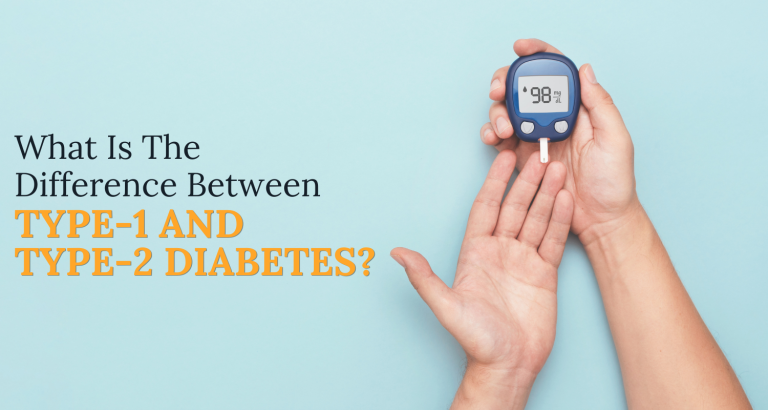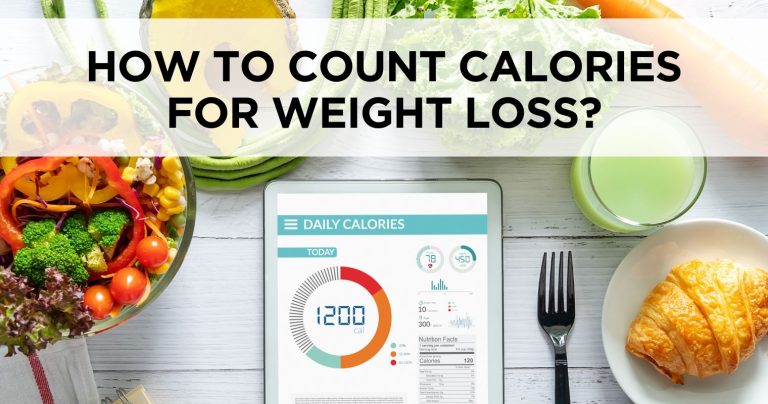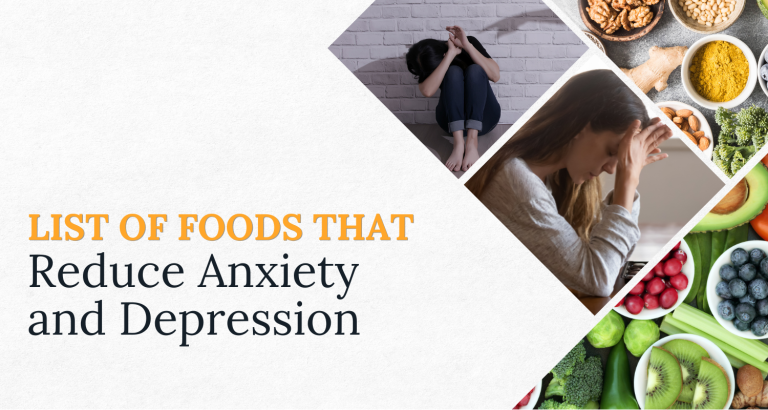Learn the Food Psychology to Stop Emotional Eating

Emotional eating is a common problem that many people face. It involves eating to cope with stress, anxiety, boredom, or sadness rather than eating for hunger or nutrition. This may lead to weight gain, poor health, and a negative relationship with food.
If you struggle with emotional eating, it’s important to understand food psychology first. By learning about the connection between our emotions and our eating habits, you can take steps to break free from this harmful cycle.
In this blog, we’ll explore the food psychology behind emotional eating and provide practical tips to help you overcome it.
What is the Psychology of Eating?
The psychology of eating refers to how our mental and emotional states influence the way we eat. It includes the examination of our attitudes, beliefs, and behaviors surrounding food and eating.
Food is not only a basic human need but also carries social, cultural, and emotional meanings that can affect our relationship with food. The psychology of eating can help us understand why we make certain food choices, how we develop eating disorders, and how we can establish a healthier relationship with food.
Food Addiction – What is it?
While understanding the psychology of eating, it is also important to learn the psychology of food addiction. It centers around an almost irresistible urge to consume certain foods, usually those high in fat, sugar, or salt.
Some individuals find themselves in a cycle where they seek out these foods for hunger, emotional comfort, or pleasure.
This craving is deeply rooted in the brain’s reward system, much like in substance addictions. Each indulgence releases dopamine, reinforcing the behavior.
Over time, this can create significant challenges, both physically and emotionally. Essentially, food addiction psychology reveals how these eating habits are less about sustenance and more about seeking emotional relief or reward.
Factors Affecting Psychological Desire for Food
There are several factors that can affect food psychology. Understanding these factors can help us develop a more holistic approach to our relationship with food and establish healthier eating habits.
These include:
- Biological factors: These include factors such as hunger, satiety, and the body’s natural responses to food and eating.
- Psychological factors: These include factors such as stress, anxiety, depression, and other emotional states that can influence our relationship with food.
- Cultural and Social factors: These include factors such as family, peer groups, cultural norms, and societal expectations that can shape our attitudes and behaviors around food.
- Environmental factors: These include factors such as food availability, accessibility, and the physical environment in which we eat.
- Personal factors: These include factors such as personality traits, personal experiences, and individual preferences that can influence our food choices and eating habits.
Poor dietary habits can lead to a range of health consequences, including nutrient deficiencies, obesity-related diseases, and mental health issues. Therefore, understanding food psychology is crucial for promoting healthy eating behaviors and preventing eating disorders.
What Are the Four Types of Eating?
When it comes to eating, there are four main types that people typically engage in: snacking, grazing, feasting, and meal eating. Each has its own role to play in our relationship with food, and understanding them can help us develop a healthier and more mindful approach to eating.
1. Snacking: Small, Unplanned Bites Between Meals, Often On-The-Go.
- Psychology: Can be driven by boredom, stress, or simply the availability of food.
- Emotional eating: Can be a trigger for emotional eating, especially if unhealthy snacks are chosen.
- Healthy snacking: Focus on nutrient-rich options like fruits, vegetables, nuts, or yogurt.
2. Grazing: Eating Small Amounts of Food Throughout the Day, Often Without a Set Schedule.
- Psychology: This can be a way to manage hunger pangs and avoid overeating at meals.
- Portion control: Key to preventing overgrazing and maintaining a balanced and healthy diet.
- Mindful grazing: Pay attention to hunger cues and choose healthy options like whole-wheat crackers, hummus, or hard-boiled eggs.
3. Feasting: Consuming a Large Amount of Food in a Short Period, Often in a Social Setting.
- Psychology: Can be a way to celebrate special occasions or connect with others.
- Moderation: It is important to avoid overindulging and feeling uncomfortable afterward.
- Balanced feasting: Include healthy options alongside treats to ensure a more balanced meal.
4. Meal Eating: Consuming a Full, Balanced Meal at Regular Times Each Day.
- Psychology: Provides structure and routine to our eating habits.
- Healthy meal planning: Choose nutrient-rich foods from all food groups.
- Mindful eating: Slow down, savor each bite, and pay attention to hunger and fullness cues.
Do You Have an Emotional Connection with Food?
Food is more than just a source of nutrition. It is intertwined with our emotions and memories. The psychology of food deeply influences our mental as well as physical well-being.
This emotional connection to food shapes our eating habits, preferences, and attitudes towards various cuisines and ingredients. Therefore, understanding the emotional connection with food is key to developing a healthy relationship with eating.
Let’s understand the complex world of our emotional ties to the food we eat:
Social Gathering and Psychology of Food
Food nourishes our bodies and plays a vital role in creating social connections. When we share meals with our loved ones, it gives us an opportunity to connect on a deeper level.
This is because food acts as a source of creating social bonds and helps to create memories. By understanding the role that food plays in our social relationships, we can learn to appreciate it as more than just a source of energy.
Comfort Foods and Emotional Eating
Food also offers emotional comfort and relaxation. Certain foods, such as family recipes, or favorite sweet dishes, have the ability to evoke feelings of nostalgia, satisfaction, and even happiness.
By learning the comforting nature of food, you can understand new ways to take care of yourself and improve your well-being.
Cultural Heritage and Identity
Understand how the foods we grew up with are not just recipes but a part of our cultural heritage. Neglecting these traditional foods can lead to feelings of disconnection.
By embracing and enjoying these dishes, we reconnect with our cultural identity and find a sense of freedom and belonging that enriches our mental health.
What Is Compulsive Eating?
Compulsive eating, also known as binge eating disorder, is a type of eating disorder where a person frequently consumes large amounts of food, often past the point of fullness or comfort.
Feelings of guilt, shame, and loss of control often accompany compulsive eating. Unlike other eating disorders, such as anorexia nervosa and bulimia nervosa, people with compulsive eating disorders do not typically engage in compensatory behaviors.
The compensatory behaviors may include purging or excessive exercise to offset binge eating. It is important to seek help from a qualified healthcare provider if you or someone you know is struggling with compulsive eating.
Breaking the Cycle of Compulsive Eating
If you find yourself turning to food to cope with negative emotions, it’s important to seek help for compulsive eating. Compulsive eating is a complex issue, but there are resources available to help you break the cycle.
Here are some tips:
- Identify your triggers: What emotions lead you to overeat? Once you know your triggers, you can develop coping mechanisms that don’t involve food.
- Practice mindfulness: Pay attention to your thoughts and feelings without judgment. This can help you become more aware of your emotional eating patterns.
- Seek support: Talk to a therapist or counselor who can help you develop healthy coping mechanisms for dealing with stress and difficult emotions.
We can cultivate a healthier and more fulfilling relationship with food by addressing emotional eating. Remember, food should be a source of nourishment and enjoyment, not a source of stress or guilt.
10 Tips on How to Stop Emotional Eating
Let’s learn 10 tips that help develop a more positive connection with what we eat, highlighting the crucial psychological influences on food choices.
- Mindful Eating: Slow down and savor each bite. Being mindful allows you to enjoy your food more and recognize when you are full, reducing overeating.
- Balanced Meals: Strive for a balanced protein, fats, and carbohydrates in each meal. This helps in maintaining energy levels and provides essential nutrients.
- Listen to Your Body: Eat when you’re hungry and stop when you’re full. Understanding your body’s cues is a key aspect of food psychology.
- Healthy Snacking: Choose nutritious snacks over high-calorie, low-nutrient options. This helps maintain energy levels and avoid unnecessary guilty food pleasures.
- Hydration: Often, thirst is mistaken for hunger. Keeping hydrated can help control hunger and aid in digestion.
- Enjoy Your Guilty Pleasure Food: It’s okay to indulge occasionally. Depriving yourself can lead to overeating later. Enjoy these treats mindfully and in moderation.
- Cook at Home: Cooking your own meals gives you control over ingredients and portions to foster a healthier relationship with food.
- Variety is Key: Eating a wide range of foods ensures a broader intake of nutrients and keeps meals interesting.
- Avoid Emotional Eating: Recognize and address emotions that lead to eating when not hungry. Emotional eating is a significant aspect of food psychology.
- Seek Professional Advice: If you struggle with eating habits, consult a dietitian or a psychologist specializing in food psychology. They can provide tailored advice and support.
Conclusion
Eating for pleasure and emotional eating are two different aspects of our relationship with food. While they may intersect sometimes, it’s essential to recognize the differences and make mindful choices.
Food and pleasure always go hand in hand. Celebrating and enjoying food is a fundamental part of a fulfilling life, but using it as the sole means to manage emotions can lead to unhealthy habits.
By staying aware of psychological influences on food choices and developing healthier coping mechanisms, you can strike a harmonious balance between eating for pleasure and emotional eating, nurturing your body and your emotional well-being.
In this journey, remember that food is not just sustenance but a source of joy, comfort, and connection in our lives.
Food Psychology – Frequently Asked Questions (FAQs)
What is the psychological desire for food?
Appetite is the psychological desire for foods or beverages.
What is Hedonic Hunger?
Hedonic hunger is a type of hunger that is driven by the desire to eat for pleasure rather than to satisfy physical hunger. It is often described as a craving or a strong urge to eat specific foods, even when the body does not need additional nourishment.
What is the concept of the psychology of food?
Food psychology is the study of how food affects human behavior, emotions, and cognition. It explores the psychological factors that influence our food choices, eating habits, and relationship with food.
Is eating a behavior in psychology?
There are psychological influences on food choices. Therefore, eating is considered a behavior in psychology. It is a complex behavior that can be influenced by various factors, such as physiological, environmental, and psychological factors.
What are food related psychological needs?
Food related psychological needs refer to the emotional and mental factors that influence our food choices and eating behaviors. These needs may include things like comfort, stress relief, reward, social connection, and cultural identity.
What is nutritional psychology?
Nutritional psychology is the study of how food affects a person’s mental and emotional well-being. Also, it explores the relationship between what we eat and how we feel, think, and behave.
Why is food psychology important?
Food psychology is important because it helps us understand how our emotions and behaviors impact our food choices and eating habits. By studying food psychology, we can learn how to make healthy food choices, overcome emotional eating, and develop a positive relationship with food.
How does food affect your mood?
Food has a direct impact on our mood and energy levels. Certain foods can increase the levels of neurotransmitters in our brain, such as serotonin, which can make us feel happier and more content. On the other hand, consuming foods high in sugar and unhealthy fats can lead to a temporary spike in energy levels followed by a crash, leaving us feeling tired and irritable.
What are two psychological functions of food?
Food has two primary psychological functions. Firstly, it provides pleasure and comfort. Eating certain foods can trigger the release of dopamine, a neurotransmitter that is associated with pleasure and reward. Secondly, food can serve as a way to express cultural identity and connect with others. Sharing meals and traditional dishes can be a way to bond with family, friends, and community.
How can food be psychologically satisfying?
As per nutritional psychology, food can be psychologically satisfying in many ways. For example, it can bring back fond memories of a happy occasion or a special person. It can also provide a sense of comfort and security, especially during times of stress.
Disclaimer: This content, including advice, provides generic information only. It is not a substitute for a qualified medical opinion. Always consult a specialist or your own doctor for more information. Ingredient Fact does not claim responsibility for this information.






